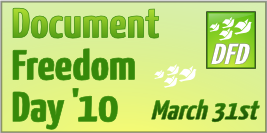In another interesting keynote at OSBC by Steven Pearson, VP of Advanced Technologies at CBS Interactive, we learned about how deeply open source is being used in his organization. Almost every online property of CBS – CBS.com, CBSSports.com, CBSNews.com, Last.fm – is using open source for their application requirements, ranging from news simulcasts, live election reporting to connecting users who share similar tastes in music and customizing radio streams.
Linux, Apache, MySQL, Perl, Lucene, Tomcat, PHP, Spring are among technologies that CBS is using heavily. Open source has offered greater ROI for CBS with increase in speed of development, ease of access to source code and documentation, and the ability to enhance source code when needed. CBS Interactive has also contributed back to several open source projects such as CPAN.
The future of open source is bright at CBS with more and more open source projects for the online services that CBS is offering its audiences. Interestingly, Pearson did not feel that competition with other media organizations such as NBC, ABC, and Fox prevents CBS from contributing to open source projects. After all, having content platforms, made robust through open source practices, for delivering ads helps drive up CBS’s revenues.

